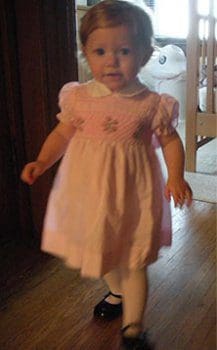Beyond Your Years with Luis Martinez
The ‘Grand’ of Grandparents
Have you thoughtfully considered this – what is it that is grand about grandparents? Why do we adore grandparents? What is so intrinsically valuable about grandparents in the family dynamic? Why do some cultures idolize them? The culture in China places grandparents on a pedestal; they are respected and honored, and their traditions are passed down to their children, grandchildren and great-grandchildren. What do grandparents mean to us? What do they mean to our children?
Let’s start with the name. Where does the word ‘grand’ come from? Well, it starts out in Latin with the word ‘magnus’, which when translated to European tongues like French and English results in ‘grand’. We must keep in mind that, not so long ago, three generations of a family was very rare, given the short average lifespan. In the United States in 1900, the life expectancy was only 46.3 years! But today, with so many people becoming octogenarians, nonagenarians (my mother is 99) and even centenarians (22 per 100,000 in the US), the opportunities to have three or even four generations in a household are very realistic.
What is the main role of a grandparent? Mary Gavin, MD, explains results of her research: “Besides modeling what constitutes a ‘normal’ relationship, grandparents provide children with a sense of safety and protection, a link to their cultural heritage and family history, and a companion in play and exploration.”
Are all grandparents the same? Evidently not. Research dating as far back as 1965, by the University of Chicago’s Bernice Neugarten—one of the leading gerontologists of that time—suggested that there are five different patterns of grandparenting, based on behaviors and relationships. The five are 1. Formal grandparent, 2. Fun seeker: 3. Surrogate parent: 4. Reservoir of family, and 5. Distant figure. Which one are you? Or if you’re a grandparent-to-be, which type do you hope to be? As a grandfather, I’d like to think of myself as a combination of Fun Seeker and Reservoir of my Cuban culture.

Abby’s special dress
How influential are grandparents on their grandchildren? As I think about my own grandparents, my father’s father, Francisco, was born in Spain, emigrated to Cuba at 15 and became a pipefitter. He used to tell me how during World War I he was building Victory Ships in Chester, PA, and celebrated the Armistice of 1918 on Broad Street in Philadelphia. I learned from him about hard physical labor under terrible working conditions (he used to apply thick coats of asbestos on steam pipes with his bare hands). My mother’s father, Juan, had interesting hobbies. In the late 1950s grandfather Juan took me to the Sears, Roebuck store in Havana. We walked to the tool department where he purchased several pieces of Craftsman brand woodworking tools – a planer, band saw, drill press, radial saw, table saw, etc. They were all Craftsman tools, the Sears brand. Today, 60 years later, in my garage, all of my tools, tool boxes and cabinets are the familiar red and black colors of Craftsman, honoring my grandfather’s respect for the brand.
My mother was an expert seamstress; Mami made beautiful dresses for our daughter, Alison. When Alison had Abby, Abby was able to wear the same dresses that Mami had made, so Mami’s skills spilled to a fourth generation. Moments like that are priceless.
This Sunday September 11 is National Grandparents Day. Celebrate by doing something grand! Plan and enjoy activities, both fun and educational, with people of three or four generations. Bring intergenerational family and people together and make it memorable!
Luis Martinez is a guest blogger for St. John’s. He is an active senior that likes to observe and write about how people work at their careers, guide their businesses, strengthen their families, stay physically fit and mentally sharp, and race their sports cars. Luis habla español. Follow Luis on Twitter @BeyondYourYears, or email Luis@HumanCapitalSP.com
